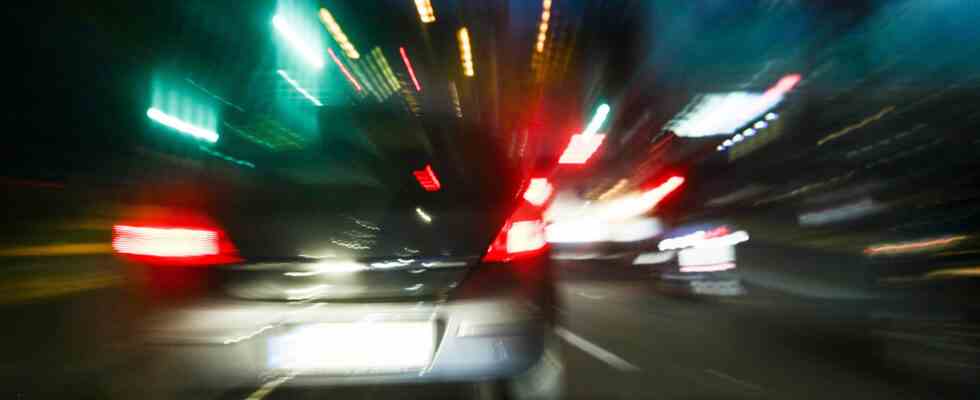Status: 07/15/2022 3:14 p.m
Nationwide, the number of illegal car races has increased – although tougher penalties are intended to prevent just that. In 2017, the so-called “Raser Paragraph” was introduced for this purpose. But that doesn’t go far enough for experts.
When Michael Weyde begins his work, he tries to look into the past. Weyde is an expert at Accident Research Berlin. Using vehicle data, he reconstructs car accidents: what happened in the last few seconds before an impact, whether the driver took the corner too quickly – Weyde can often understand this using the on-board computer.
He is asked for help, for example, when the police and prosecutors suspect an illegal car race to be the cause of the accident. And that’s happening more and more often: in recent years, the number of illegal car races and speeding trips in Germany has more than doubled. This is based on research by Team UPWARD editorial team of ARD lunchtime magazine out. While the police recorded 2,163 illegal car races in 2019, by 2021 there were already 5,674.
North Rhine-Westphalia and Berlin are hotspots
North Rhine-Westphalia and Berlin are particularly striking. In North Rhine-Westphalia, the number of illegal car races almost tripled from 766 to 2037 between 2019 and 2021. Berlin follows close behind, with 362 races recorded in 2019 and 562 in 2021.
The numbers include illegal car races with several participants, but also individual speeders who are on the road with the dangerous aim of reaching maximum speed – for example when fleeing from the police.
Because Baden-Württemberg and Saarland did not fully record illegal car races for this period, they were not considered in this research. Some other federal states point out that the increased number of recorded car races could also be due to increased controls.
Speeders face up to ten years in prison
Actually, the legislators wanted to curb illegal car races with tougher penalties. In 2017, the so-called “racer paragraph” was introduced into the penal code. One of the reasons for this was an illegal car race between two young men on Berlin’s Kurfürstendamm in February 2016. At that time, an uninvolved driver died.
In the meantime, car racing is no longer considered an administrative offense punishable by a fine, but a criminal offense – up to two years imprisonment threatens just for taking part. If a person dies, paragraph 315d provides for prison sentences of up to ten years.
Ministry of Justice sees Raser Paragraph as a success
Although speeding has increased massively, some with injuries and even deaths, the Federal Ministry of Justice considers the introduction of the “Speeding Paragraph” a good five years ago as a success. It refers to the increasing criminal prosecution: According to the ministry, there were 917 convictions in Germany from 2018 to 2020, 71 of them imprisonment. A “deterrent effect” is “plausible in view of the penalties imposed and the number of convictions”.
Berlin public prosecutor Andreas Winkelmann represents the state in many court cases relating to illegal car racing. He warns against resting on the “raser paragraph”. “The paragraph is already having an effect, but more needs to happen. Politicians need to take action.”
States take different approaches
The state governments have very different strategies for taking action against illegal car racing. the Team UPWARD-Research in all 16 federal states shows that many are trying to curb the frenzy with speed controls.
In Baden-Württemberg, for example, the police use so-called “enforcement trailers”, a digital speedometer built into a trailer that does not require personnel. Hesse also uses special video technology.
Bremen, North Rhine-Westphalia and Hesse use specially trained officials. Other federal states, including Rhineland-Palatinate, North Rhine-Westphalia and Saxony-Anhalt, are also working with prevention programs such as social media videos and posters.

